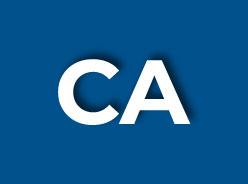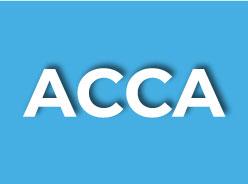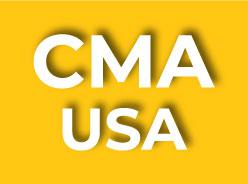Being a senior executive responsible for managing the financial actions of a company, a chief financial officer (CFO) handles the cash flow and financial planning as well as analyzing the company's financial strengths and weaknesses. Being a Certified Management Accountant, you can achieve your dream of becoming a CFO.
CMA
The Certified Management Accountant certification signifies knowledge in various areas such as financial planning, decision support, analysis control, and ethics. The course offered by the Institute of Management Accountants (IMA) is globally recognized. The qualification opens up a wide range of career opportunities in organizations of various sectors and domains. CMA USA qualified candidates also get better financial compensations compared to their non-certified counterparts.
Know the career opportunities of a Certified Management Accountant from our previous blog “What are the career opportunities available for CMA USA!”
Why CMA?
Even if there are many degrees that lead to the CFO qualification, CMA fills the first position. A CFO deals with major company responsibilities and business decisions. Cost management, Internal controls, strategic planning and decision making, banking, risk management, financial planning, and analysis are the major skills that a CFO should possess. While considering other professional courses, CMA certification enables the students to get all the qualities to become a CFO.
Way to CFO
There are certain factors which make a clear path to your life goal.
- Count the Years of Work Experience
After the completion of CMA, you can gain various positions that will involve analysis, analytics, budgeting, compliance, and risk management. The number of years of work experience is an important factor which makes you more suitable for the position of CFO. Although you have a great number of work experience, you should have enough understanding of each sector to be able to make decisions for your company.
2.Extend your Roles
Never miss any opportunity which can develop a new skill. Even if it is a minor role, the value of an additional skill is there. You can be a part of accounting know-how for a local non-profit. You can work in NGOs (non-governmental organizations), tasked with making strategic decisions that shape the organization’s direction.
3.Get into the network of Opportunities
Don’t skip any opportunities. The networking builds the career from the first entry-level position to the corporate ladder. If you are aiming for an executive-level position like CFO, the networking opportunities have a great part in it. Make a list of your goals, let the people in your network know your core areas of interest. The professional connections and networks bring you more contacts and career options. Always follow a guide and get proper planning about your further steps.
Dealing with diverse areas related to budgeting, planning, weathering uncertain financial markets, and monitoring a company’s financial health, a CFO needs unique skill sets in business strategies and understanding.

 ABOUT LAKSHYA
ABOUT LAKSHYA  WHY CHOOSE LAKSHYA
WHY CHOOSE LAKSHYA  MISSION AND VISION
MISSION AND VISION  CHARTERED ACCOUNTANCY (CA)
CHARTERED ACCOUNTANCY (CA)  ACCA
ACCA  CMA-USA
CMA-USA  RESULTS
RESULTS 


